Starting your journey into data science can feel like stepping into a vast ocean of information. To navigate these waters, you need the right tools, and books are an excellent starting point.
In this article, we’ll dive into some of the best data science books for beginners. From programming essentials to statistics basics, we’ll cover a wide range of resources to help you embark on your data science adventure.
Also read about 2024 Best Data Science Bootcamps.
Best Data Science Books For Beginners
1. Data Science for Business by Foster Provost and Tom Fawcett
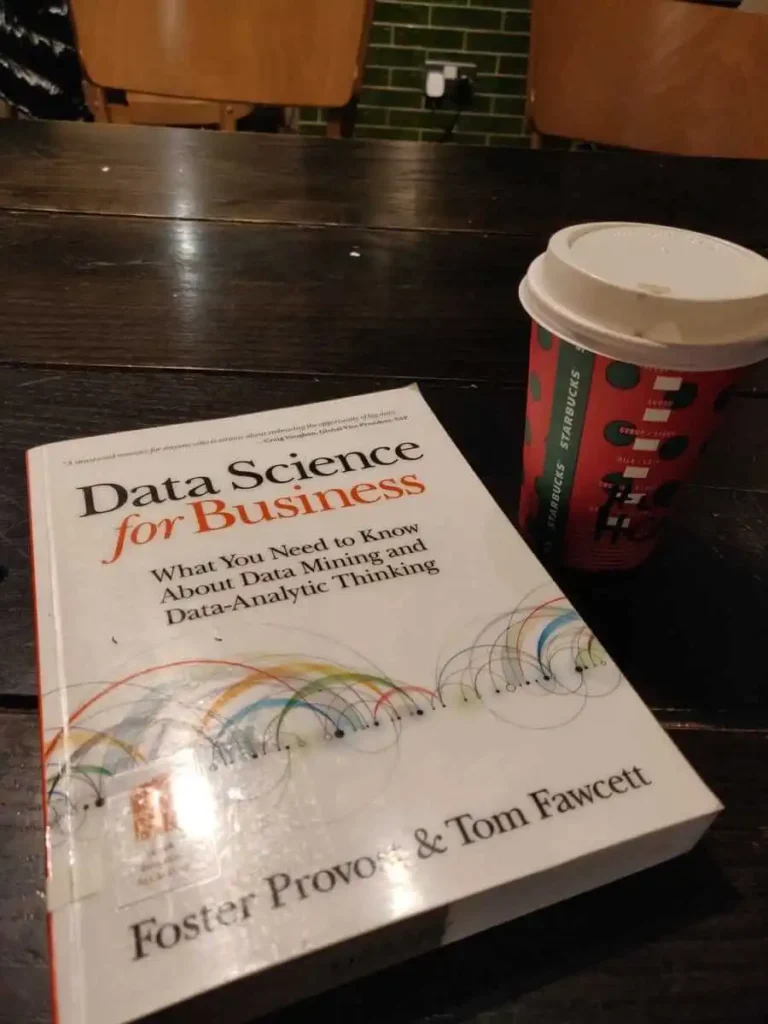
Authors: Foster Provost and Tom Fawcett
Provost and Fawcett, experts in data mining and machine learning, team up to bring you this gem. Their backgrounds in academia and industry lend credibility to their teachings.
Description
“Data Science for Business”, one of the best data science books, bridges the gap between data science and real-world applications. Whether you’re a business enthusiast or a data buff, this book helps you understand how data science can transform business strategies.
Pros
- Accessible even to non-technical readers.
- Rich with practical examples and case studies.
- Emphasizes the business value of data science.
Cons
- Light on technical details.
- Not ideal for those seeking deep technical knowledge.
2. Data Science from Scratch by Joel Grus
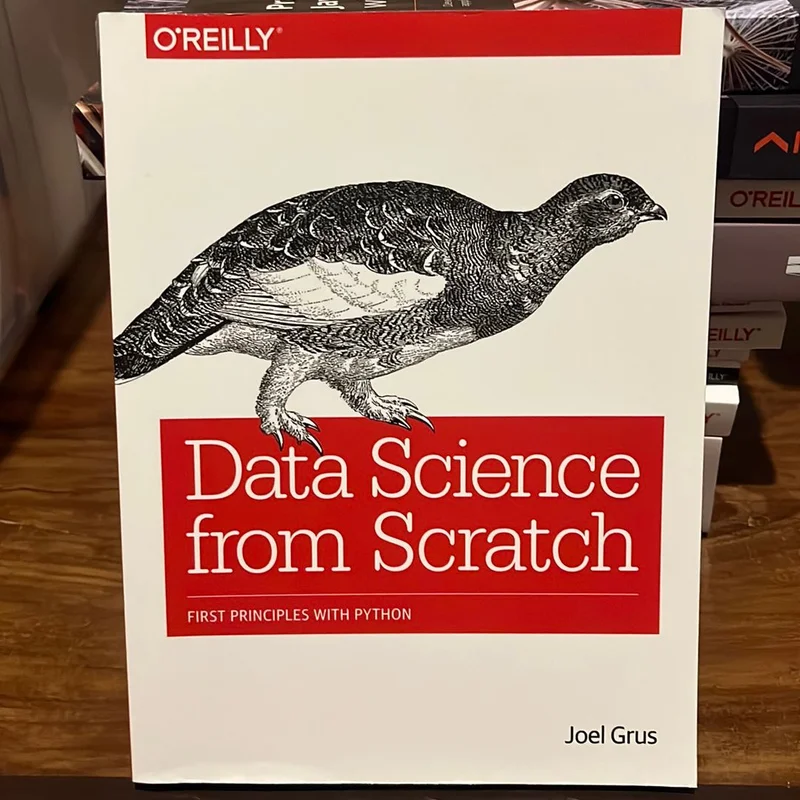
Author: Joel Grus
Grus, a research engineer at the Allen Institute for Artificial Intelligence, brings his expertise in software development and data science to the table.
Description
“Data Science from Scratch” is all about hands-on learning. Grus takes you on a journey through the fundamentals of data science, with a focus on building algorithms from scratch using Python.
Pros
- Emphasizes practical implementation.
- Suitable for beginners with basic Python knowledge.
- Covers a broad range of data science topics.
Cons
- Not as comprehensive as other textbooks.
- Assumes some programming background.
3. “Data Science for Dummies” by Lillian Pierson
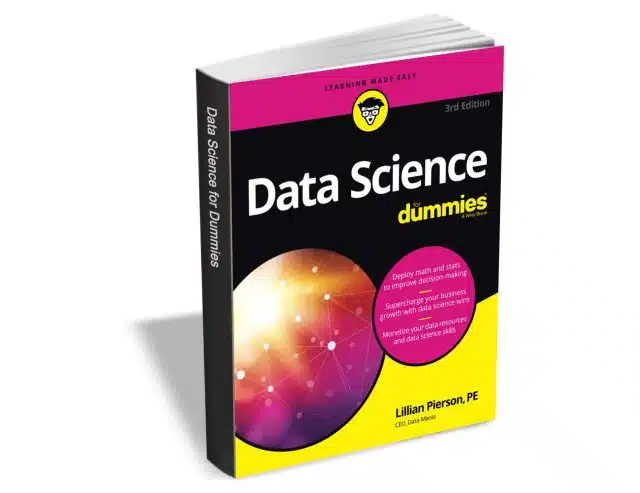
Author: Lillian Pierson
Pierson, a data scientist and educator, breaks down complex data science concepts into easy-to-understand terms in this beginner-friendly guide.
Description
“Data Science for Dummies” is considered one of the best data science books for those new to the field. It offers a comprehensive overview of data science principles and techniques. Pierson covers topics like data exploration, machine learning, and data visualization, making it accessible to readers with diverse backgrounds.
Pros
- Beginner-friendly language and explanations.
- Covers a wide range of data science topics.
- Includes practical examples and case studies.
Cons
- Some readers may find it too simplistic.
- Not as in-depth as other textbooks.
Also explore about Best Data Science Schools with Affordable Fee in USA.
4. “Python Data Science Handbook” by Jake VanderPlas
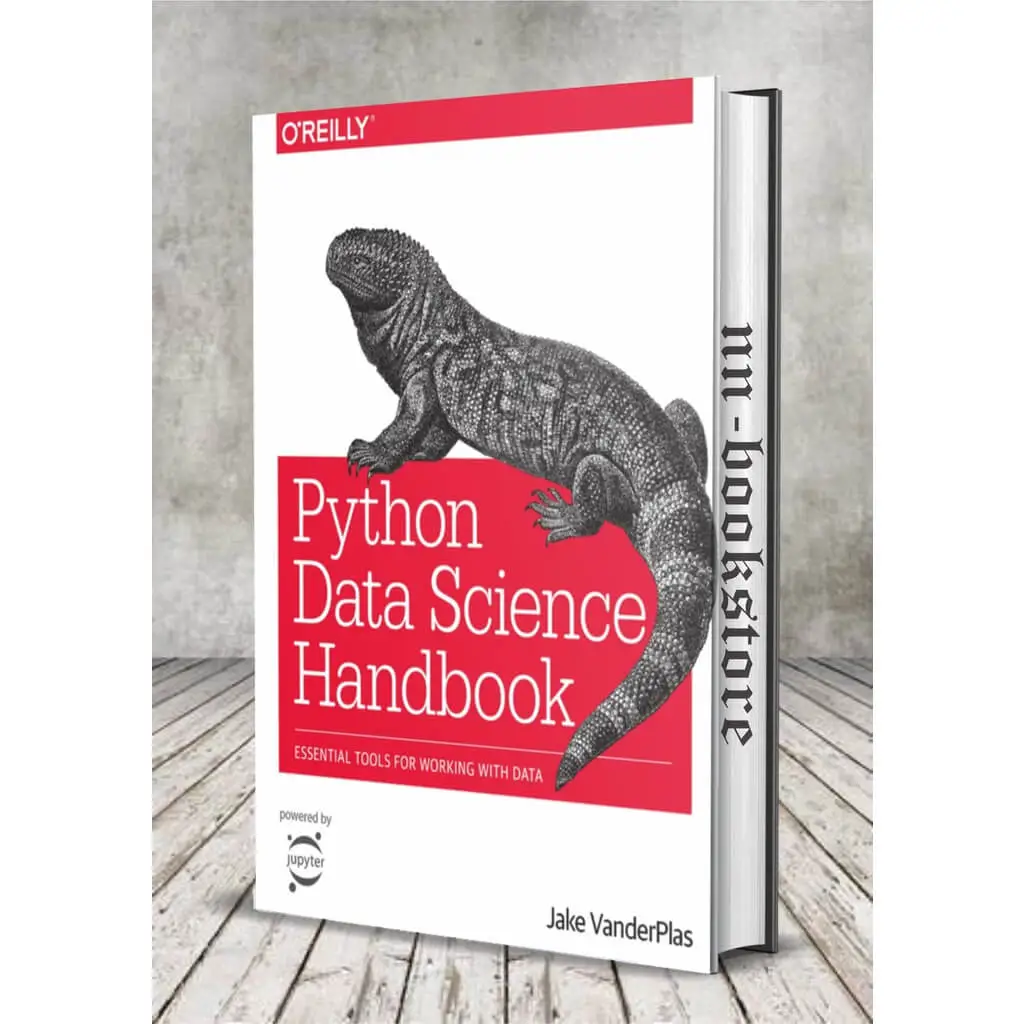
Author: Jake VanderPlas
VanderPlas, a data scientist and researcher, shares his expertise in Python data science libraries in this comprehensive handbook.
Description
“Python Data Science Handbook” is included in best data science books for being a comprehensive guide to using Python for data analysis, machine learning, and visualization. VanderPlas covers essential libraries like NumPy, pandas, and scikit-learn, providing practical examples and tutorials to aid learning.
Pros
- Comprehensive coverage of Python data science libraries.
- Hands-on tutorials and examples.
- Suitable for beginners and intermediate learners.
Cons
- Assumes basic Python proficiency.
- Some sections may be challenging for complete beginners.
5. Python for Data Analysis by Wes McKinney
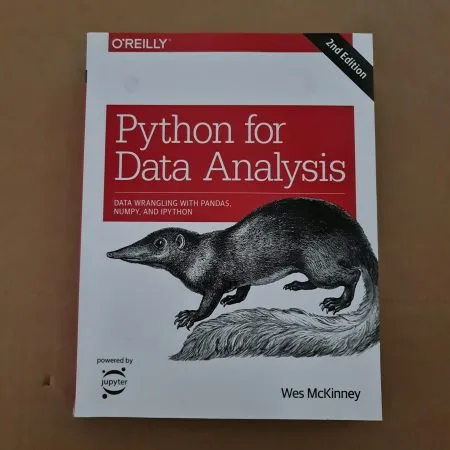
Author: Wes McKinney
Wes McKinney, the brain behind the pandas library, has crafted this book. He’s a seasoned software developer with a knack for simplifying complex data tasks.
Description
“Python for Data Analysis” is your go-to guide for mastering Python’s data manipulation and analysis capabilities. McKinney walks you through essential libraries like NumPy and Matplotlib, making data tasks feel like a breeze.
Pros
- Clear explanations perfect for beginners.
- Practical examples to reinforce learning.
- Authored by the creator of pandas, ensuring top-notch insights.
Cons
- Assumes some prior Python knowledge.
Doesn’t delve deep into advanced topics.
6. An Introduction to Statistical Learning by Gareth James, Daniela Witten, Trevor Hastie, and Robert Tibshirani
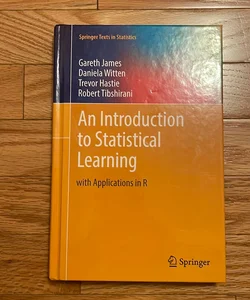
Authors: Gareth James, Daniela Witten, Trevor Hastie, and Robert Tibshirani
This quartet of statistical wizards hails from Stanford University, bringing a wealth of knowledge in statistical learning and machine learning.
Description
“An Introduction to Statistical Learning” makes to best data science books list because it is a gateway to the world of statistical learning techniques. From linear regression to tree-based methods, this book covers it all, making complex concepts digestible for beginners.
Pros
- Rigorous yet beginner-friendly.
- Packed with exercises and real-world examples.
- Provides a solid foundation for advanced machine learning.
Cons
- Assumes familiarity with the R programming language.
- Lacks extensive coverage of deep learning.
7. Think Stats by Allen B. Downey
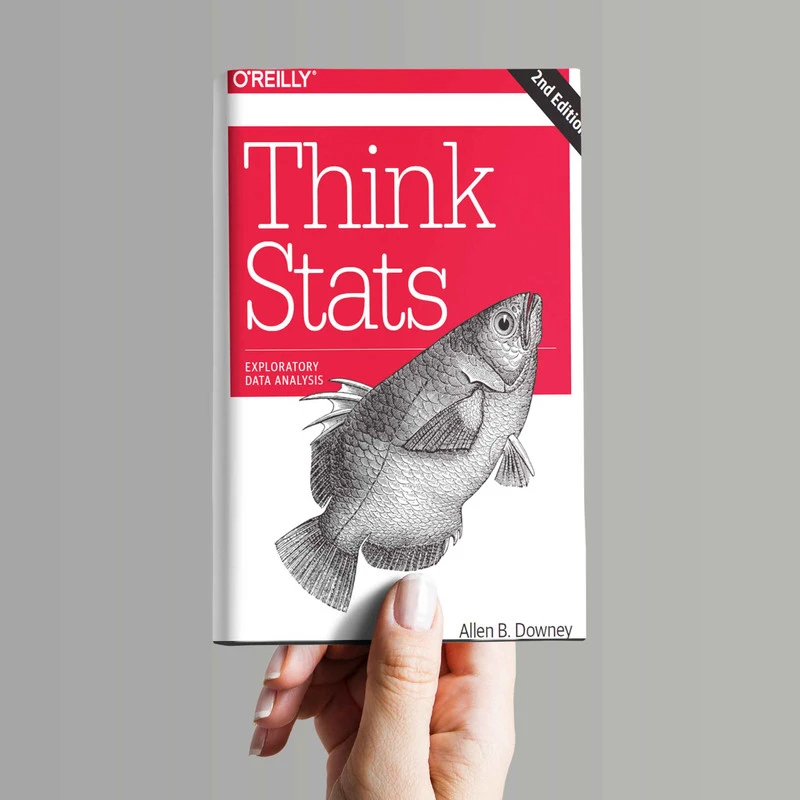
Author: Allen B. Downey
Downey, a computer science professor, is known for his knack for simplifying complex concepts. “Think Stats” is another gem in his collection of educational resources.
Description
“Think Stats” offers a gentle introduction to statistics for data science enthusiasts. Using Python, Downey covers essential statistical concepts like probability distributions and hypothesis testing, making statistics less intimidating.
Pros
- Beginner-friendly, even for those with no prior stats background.
- Filled with practical data analysis techniques.
- Includes exercises and Python examples.
- Available online for free.
Cons
- Limited coverage of advanced statistical methods.
- Assumes basic Python proficiency.
Learn more about 8 Data Science Portfolio Projects in Healthcare and Genomics.
8. “Hands-On Machine Learning with Scikit-Learn, Keras, and TensorFlow” by Aurélien Géron
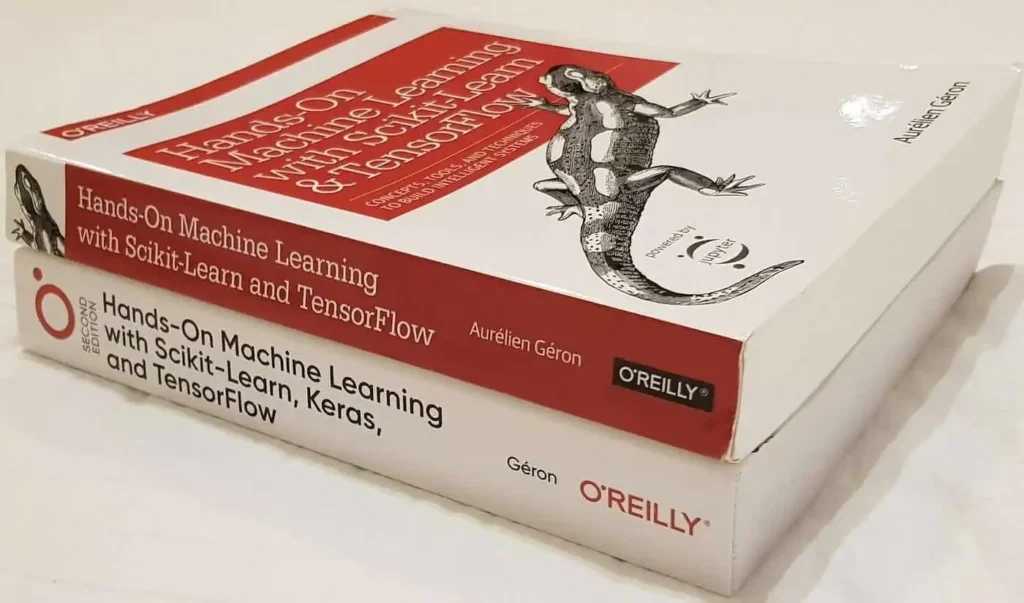
Author: Aurélien Géron
Géron, a former Google engineer, brings his expertise to this book, offering practical insights into machine learning using popular Python libraries.
Description
“Hands-On Machine Learning with Scikit-Learn, Keras, and TensorFlow” provides a hands-on approach to mastering machine learning techniques. From classification to neural networks, Géron guides readers through real-world projects, demystifying complex concepts along the way. That’s why it is included in best data science books for newbies to machine learning, an essential aspect of data science.
Pros
- Practical and project-based learning approach.
- Covers essential machine learning algorithms.
- Includes TensorFlow and Keras for deep learning.
Cons
- Assumes basic Python proficiency.
- Some readers may find the pace challenging.
9. “Statistics for Data Science” by James D. Miller
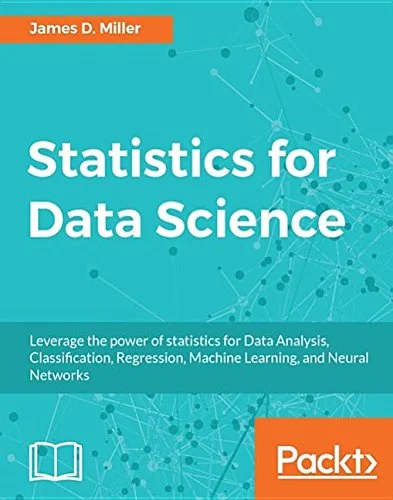
Author: James D. Miller
Miller, a statistician and data scientist, shares his expertise in statistics tailored for data science applications in this comprehensive guide.
Description
“Statistics for Data Science” offers a deep dive into statistical concepts essential for data analysis and interpretation. Miller covers topics like probability theory, hypothesis testing, and regression analysis, providing a solid statistical foundation for aspiring data scientists.
Pros
- Thorough coverage of statistical concepts.
- Practical examples and applications.
- Suitable for beginners and intermediate learners.
Cons
- May be challenging for readers with no prior statistics background.
- Focuses primarily on statistical theory rather than implementation.
Conclusion
Best Data Science books are your companions on the road to mastering this dynamic field. From Python essentials to statistical foundations, these resources equip you with the knowledge and skills needed to thrive in the world of data science.
So, grab a book, dive in, and embark on your data science adventure today!
Also read about An Ultimate Guide to How to Become Clinical Data Manager.



